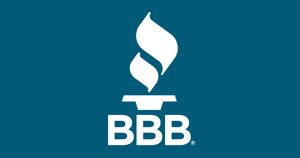Straight Talk: Double-check that QR code before you pay to park

Double check that QR code before you pay for parking
Better Business Bureau serving Canton Region and Greater West Virginia offers tips and advice for consumers to avoid fraudulent practices.
QR codes are everywhere: signs, ads, menus, and even scams. BBB Scam Tracker has seen an influx of reports about a scam that involves fraudulent QR codes at parking lots. Scammers use them to steal parking fees and collect credit card information.
How the scam works
You pull up to a city parking meter or a parking voucher machine and notice a prominently placed QR code. It may say “Pay for Parking Here” or have a similar message. Happy about the convenient payment method, you scan the code and pay using your email address and credit card number. You do not receive proof of parking, but you notice a small amount charged to your credit card. You assume that you have been charged for parking.
Later, you notice another charge on your credit card. However, this fee has nothing to do with parking. It is a recurring charge from an unrelated company posing as the city’s parking fee service. It turns out the QR code was fake, and your information is now in the hands of a scammer.
One victim reported: “I tried to buy a parking voucher using the QR code on the city parking meters. I scanned to pay for parking but received no proof of parking. I noticed a charge for $1.98 the same day. Later, I noticed a $49.99 charge on my credit card for three consecutive months. I tried calling and emailing the company with no luck. So, now I have to cancel the card.”
How to avoid impostor QR scams
● Pay for parking directly through the meter. Instead of scanning QR codes to pay for parking, use your credit card to pay directly using the machine or meter.
● Watch out for short links. If a QR code says it will open a URL-shortened link, it could be hiding a malicious URL that does not belong to the organization in which you are trying to pay.
● Look for evidence of tampering. Scammers may try to confuse you by placing QR code stickers where they are typically found. They may even place them on top of legitimate QR codes.
● Install a QR scanner with added protection. Antivirus companies may offer QR scanner apps that alert you to phishing scams, suspicious links, and forced app downloads before you click on the link.
For more information – Learn more about recent ways scammers are using fraudulent QR codes at bit.ly/FraudQRCodes. For general tips on avoiding scams, visit BBB.org/AvoidScams. If you spot a scam, whether you lose money or not, report it to BBB.org/ScamTracker. Your report can help other consumers avoid falling victim to similar scams.
For BBB Information – Visit BBB.org or call 330-454-9401 to look up a business, file a complaint, write a customer review, read tips, find our events, follow us on social media, and more!
This article originally appeared on The Alliance Review: Straight Talk: Double-check that QR code before you pay to park
